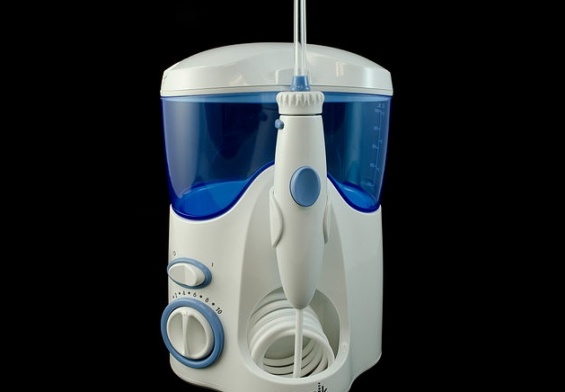There are good habits and there are bad habits. Flossing your teeth is undoubtedly one of the good ones. In fact, flossing is so beneficial to your teeth that it can be the difference between having your own natural teeth your entire life, and looking at them in a glass on your night stand every night. People who don’t floss have all sorts of reasons for not doing it. It hurts. It makes my gums bleed. It takes too much time. But the fact is that all of these excuses, and pretty much any of the others you can think of, are washed away once you begin flossing regularly … just like the food particles between your teeth. However, if you’re not flossing regularly… those food particles… well, you might as well get used to them because they’re going to be a part of your mouth for a long time, in one form or another. It might sound like an overstatement, but it isn’t. Food particles that linger between teeth cause bacteria to linger on teeth, and that can be a dental recipe for disaster. The good news is that flossing takes just a few minutes a day, and once you start, you can’t stop. Your teeth feel so much cleaner when you floss daily that you’ll feel it when you don’t do it. Flossing becomes a good habit that you just can’t break, and you won’t want to. Here’s more information from top dentists about the benefits of flossing.
Why floss? It’s very simple. Food particles get lodged between teeth, and for those who don’t floss, if those food particles don’t get brushed away, they cause bacteria buildup that leads to dental problems such as tooth decay and gum disease. Sure, brushing your teeth is a vital component of a healthy oral hygiene routine, but brushing alone can’t get every piece of food out from in between teeth. That’s why flossing is essential. The American Dental Association suggests flossing no less than once every day in order to reach areas between teeth where toothbrushes aren’t able to reach.
For many people, though, it’s difficult to begin a flossing routine, especially since gums that have never been flossed, or haven’t been flossed in a long time, hurt and may even bleed. The good news about flossing is that once you begin flossing, your gums eventually won’t be irritated anymore. In fact, your teeth and gums will be healthier than ever. So what do you do if you’re just beginning a daily flossing regimen? How do you begin? When should you floss, before or after you brush? And what type of flossing product is best?
The first step in beginning a flossing routine is to choose the floss product that’s right for you. Many people find regular floss a little overwhelming and even cumbersome to use at first. If you’re not sure regular floss is right for you, try floss picks or tape. Floss picks are portable and very easy to use, and the cost is comparable to regular floss. The next step is to choose the time of day to floss. Many dentists recommend a once-daily flossing regimen that is done at the end of the day in order to catch all the food particles left from the day’s food consumption. However, this is up to the individual, and frankly, it doesn’t matter when you do it, as long as you do it. The final step is to choose whether to floss before or after you brush. A recent study showed that folks who floss are about even on this question, with about 52 percent saying they floss before they brush, and the remaining 48 percent saying they floss after brushing. Again, as long as you floss, before or after brushing really doesn’t matter.
Here’s a challenge to all you non-flossers out there: For the next day or two, floss just once a day … but only after you brush. That’s right. Brush your teeth as you normally would and then floss afterward. But be forewarned, because what you find may shock you. Brushing twice daily is a vital element of a healthy oral hygiene routine. But, truth be told, flossing is just as important. For, without it, food particles that are stuck between teeth often stay there, and when that happens, trouble ensues. For more information on flossing and all the other important components of a good dental health regimen, schedule an appointment with a top dentist in your area, and be sure to take all your questions about brushing and flossing with you.


